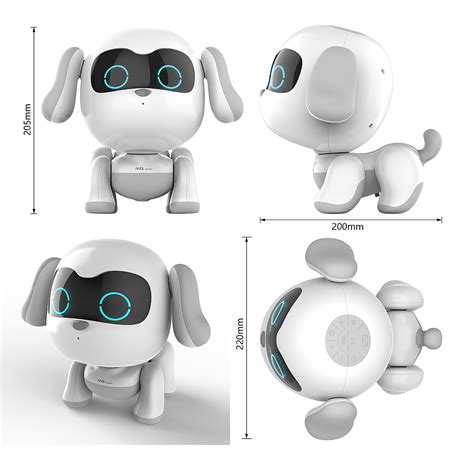关于机器狗的作文
- 生活百科
- 2024-05-05
- 696
Title: The Rise of RoboPets: Exploring the Fascination with Mechanical Canines
In recent years, there has been a burgeoning interest in robotic pets, particularly robotic dogs. This phenomenon stems from a combination of technological advancements, changing societal norms, and evolving attitudes towards pet ownership. In this essay, we delve into the reasons behind the popularity of robotic dogs and examine their implications for pet owners and society as a whole.
Technological Advancements:
The rapid progression of technology has paved the way for the development of highly realistic and interactive robotic pets. Manufacturers are now able to incorporate advanced sensors, artificial intelligence, and lifelike movements into these mechanical companions, making them increasingly indistinguishable from their fleshandblood counterparts.
One of the key drivers of this technological leap is the growing demand for companionship among individuals who are unable to keep traditional pets due to factors such as allergies, living arrangements, or lifestyle constraints. Robotic dogs offer a solution by providing the companionship and emotional support that many people crave without the practical limitations of owning a real animal.
Changing Societal Norms:

Societal norms surrounding pet ownership have also undergone a transformation in recent years. While traditional pets such as dogs and cats remain immensely popular, there is a growing acceptance of alternative forms of companionship, including robotic pets.
This shift can be attributed to several factors, including an increasingly urbanized lifestyle, rising awareness of animal welfare issues, and a greater emphasis on sustainability. Robotic pets offer a crueltyfree alternative to traditional pet ownership, as they do not require the consumption of animal products or contribute to pet overpopulation.
Evolving Attitudes Towards Pet Ownership:
Furthermore, there has been a notable shift in attitudes towards the responsibilities and obligations associated with pet ownership. While many people still derive immense joy and fulfillment from caring for a real animal, others are drawn to the convenience and flexibility offered by robotic pets.
Robotic dogs require minimal maintenance compared to their living counterparts. They do not need to be fed, walked, or taken to the veterinarian, making them an attractive option for individuals with busy lifestyles or limited resources.
Implications for Pet Owners and Society:
The rising popularity of robotic pets raises important questions about the nature of companionship and the ethical considerations surrounding artificial intelligence and animal welfare.
While robotic dogs offer companionship and emotional support to their owners, they also raise concerns about the potential for dehumanization and the erosion of empathy. Interacting with a robotic pet is fundamentally different from interacting with a living, sentient being, and some critics worry that reliance on artificial companionship could lead to a loss of genuine human connection.
Moreover, the widespread adoption of robotic pets could have broader societal implications, particularly in terms of employment and industry disruption. As robotic technology continues to advance, it is conceivable that robotic pets could become increasingly sophisticated, potentially displacing jobs in industries such as pet care, animal training, and veterinary medicine.
Conclusion:
In conclusion, the rise of robotic pets, particularly robotic dogs, reflects a convergence of technological innovation, changing societal norms, and evolving attitudes towards pet ownership. While robotic pets offer companionship and convenience to their owners, they also raise important ethical and societal questions that warrant careful consideration.
As we continue to integrate technology into our lives, it is essential to strike a balance between the benefits of innovation and the preservation of our humanity. Robotic pets may offer a glimpse into the future of companionship, but we must remain vigilant in ensuring that our quest for convenience does not come at the expense of empathy and genuine connection.
下一篇
虹口区房产过户费用查询













